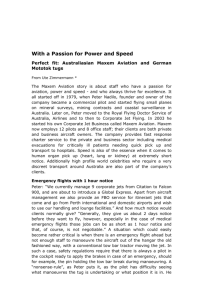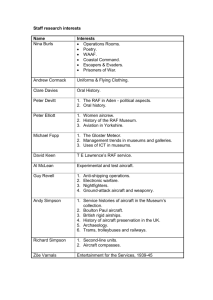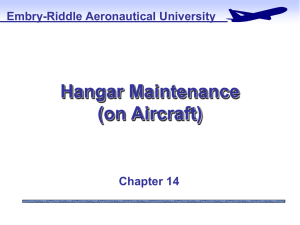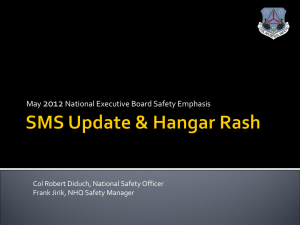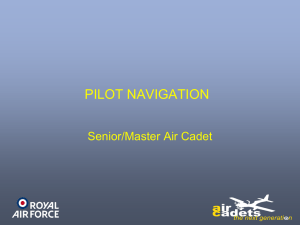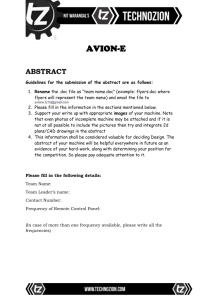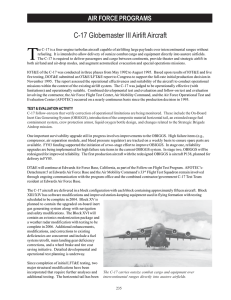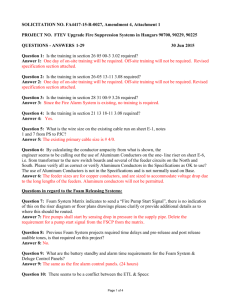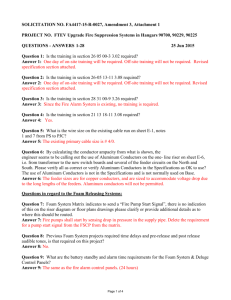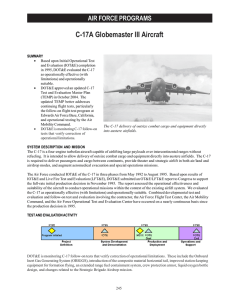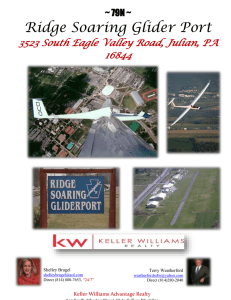the PDF
advertisement
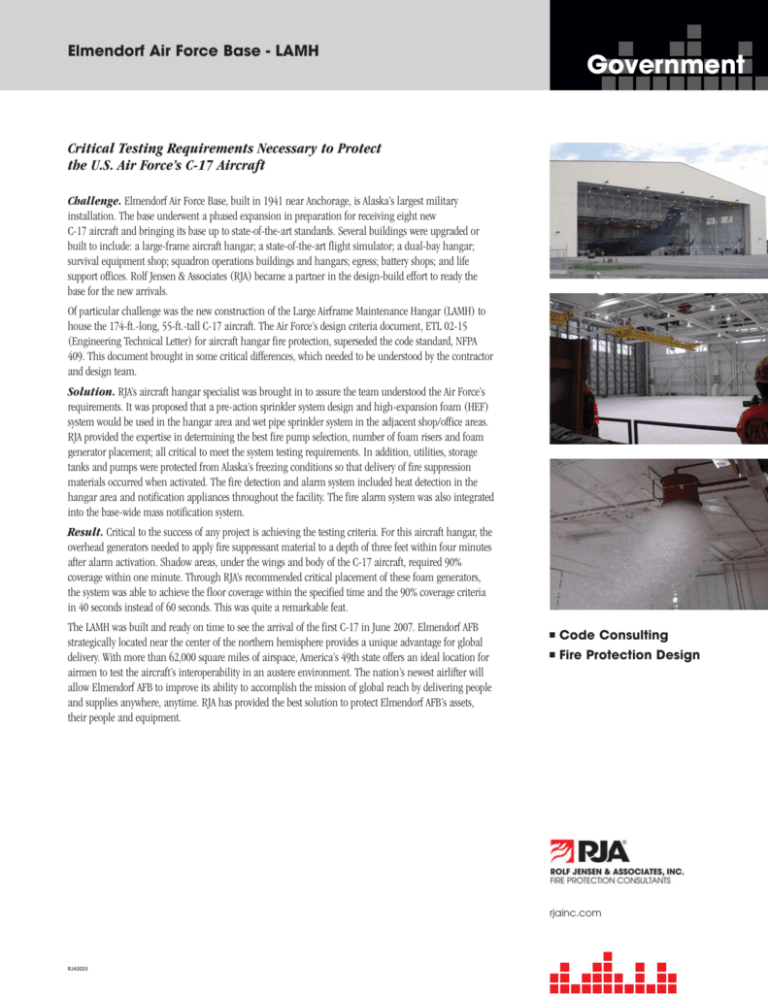
Elmendorf Air Force Base - LAMH Government Critical Testing Requirements Necessary to Protect the U.S. Air Force’s C-17 Aircraft Challenge. Elmendorf Air Force Base, built in 1941 near Anchorage, is Alaska’s largest military installation. The base underwent a phased expansion in preparation for receiving eight new C-17 aircraft and bringing its base up to state-of-the-art standards. Several buildings were upgraded or built to include: a large-frame aircraft hangar; a state-of-the-art flight simulator; a dual-bay hangar; survival equipment shop; squadron operations buildings and hangars; egress; battery shops; and life support offices. Rolf Jensen & Associates (RJA) became a partner in the design-build effort to ready the base for the new arrivals. Of particular challenge was the new construction of the Large Airframe Maintenance Hangar (LAMH) to house the 174-ft.-long, 55-ft.-tall C-17 aircraft. The Air Force’s design criteria document, ETL 02-15 (Engineering Technical Letter) for aircraft hangar fire protection, superseded the code standard, NFPA 409. This document brought in some critical differences, which needed to be understood by the contractor and design team. Solution. RJA’s aircraft hangar specialist was brought in to assure the team understood the Air Force’s requirements. It was proposed that a pre-action sprinkler system design and high-expansion foam (HEF) system would be used in the hangar area and wet pipe sprinkler system in the adjacent shop/office areas. RJA provided the expertise in determining the best fire pump selection, number of foam risers and foam generator placement; all critical to meet the system testing requirements. In addition, utilities, storage tanks and pumps were protected from Alaska’s freezing conditions so that delivery of fire suppression materials occurred when activated. The fire detection and alarm system included heat detection in the hangar area and notification appliances throughout the facility. The fire alarm system was also integrated into the base-wide mass notification system. Result. Critical to the success of any project is achieving the testing criteria. For this aircraft hangar, the overhead generators needed to apply fire suppressant material to a depth of three feet within four minutes after alarm activation. Shadow areas, under the wings and body of the C-17 aircraft, required 90% coverage within one minute. Through RJA’s recommended critical placement of these foam generators, the system was able to achieve the floor coverage within the specified time and the 90% coverage criteria in 40 seconds instead of 60 seconds. This was quite a remarkable feat. The LAMH was built and ready on time to see the arrival of the first C-17 in June 2007. Elmendorf AFB strategically located near the center of the northern hemisphere provides a unique advantage for global delivery. With more than 62,000 square miles of airspace, America’s 49th state offers an ideal location for airmen to test the aircraft’s interoperability in an austere environment. The nation’s newest airlifter will allow Elmendorf AFB to improve its ability to accomplish the mission of global reach by delivering people and supplies anywhere, anytime. RJA has provided the best solution to protect Elmendorf AFB’s assets, their people and equipment. Y Code Consulting Y Fire Protection Design rjainc.com RJA3023
